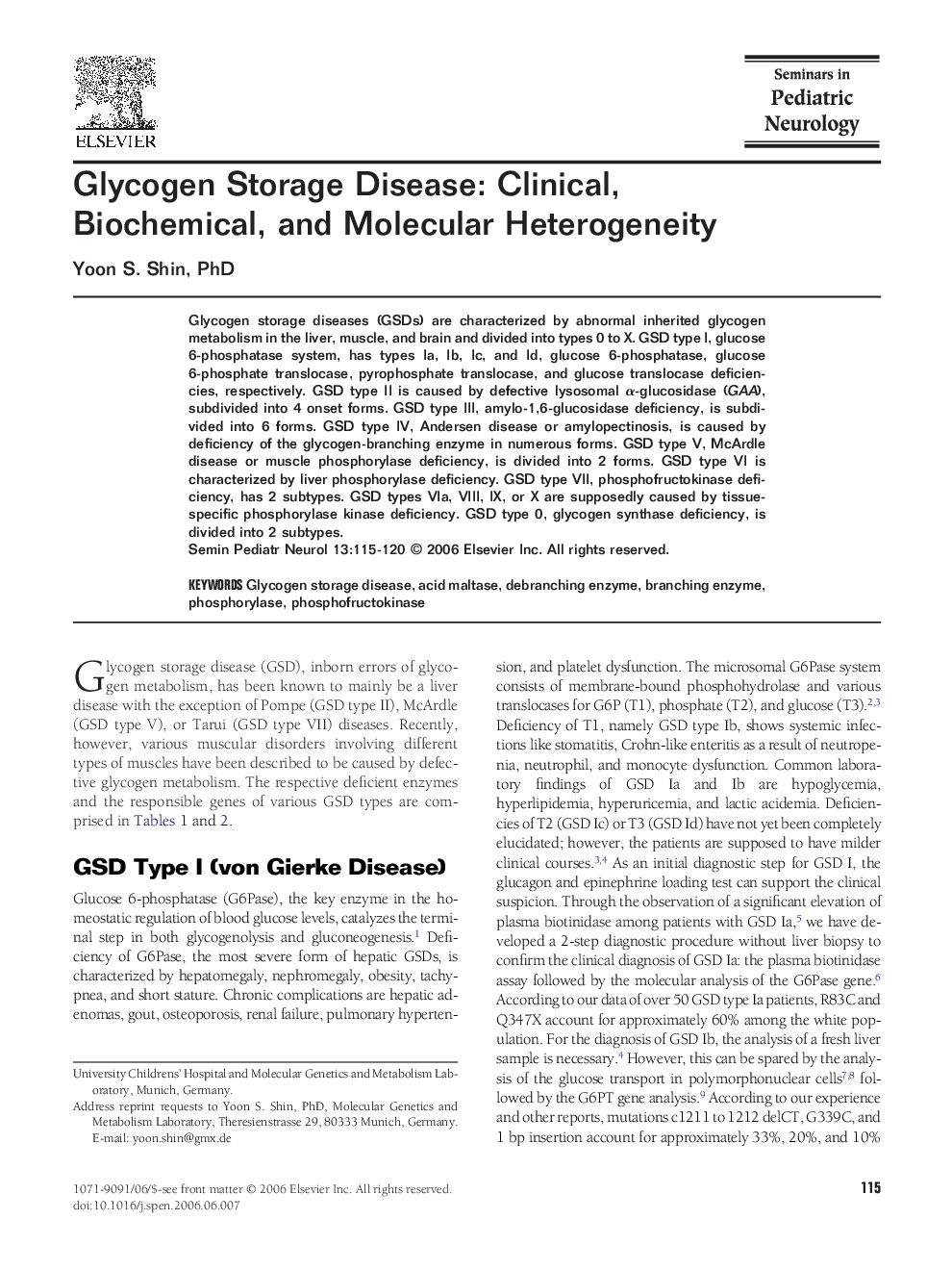| Article ID | Journal | Published Year | Pages | File Type |
|---|---|---|---|---|
| 3091294 | Seminars in Pediatric Neurology | 2006 | 6 Pages |
Glycogen storage diseases (GSDs) are characterized by abnormal inherited glycogen metabolism in the liver, muscle, and brain and divided into types 0 to X. GSD type I, glucose 6-phosphatase system, has types Ia, Ib, Ic, and Id, glucose 6-phosphatase, glucose 6-phosphate translocase, pyrophosphate translocase, and glucose translocase deficiencies, respectively. GSD type II is caused by defective lysosomal α-glucosidase (GAA), subdivided into 4 onset forms. GSD type III, amylo-1,6-glucosidase deficiency, is subdivided into 6 forms. GSD type IV, Andersen disease or amylopectinosis, is caused by deficiency of the glycogen-branching enzyme in numerous forms. GSD type V, McArdle disease or muscle phosphorylase deficiency, is divided into 2 forms. GSD type VI is characterized by liver phosphorylase deficiency. GSD type VII, phosphofructokinase deficiency, has 2 subtypes. GSD types VIa, VIII, IX, or X are supposedly caused by tissue-specific phosphorylase kinase deficiency. GSD type 0, glycogen synthase deficiency, is divided into 2 subtypes.
